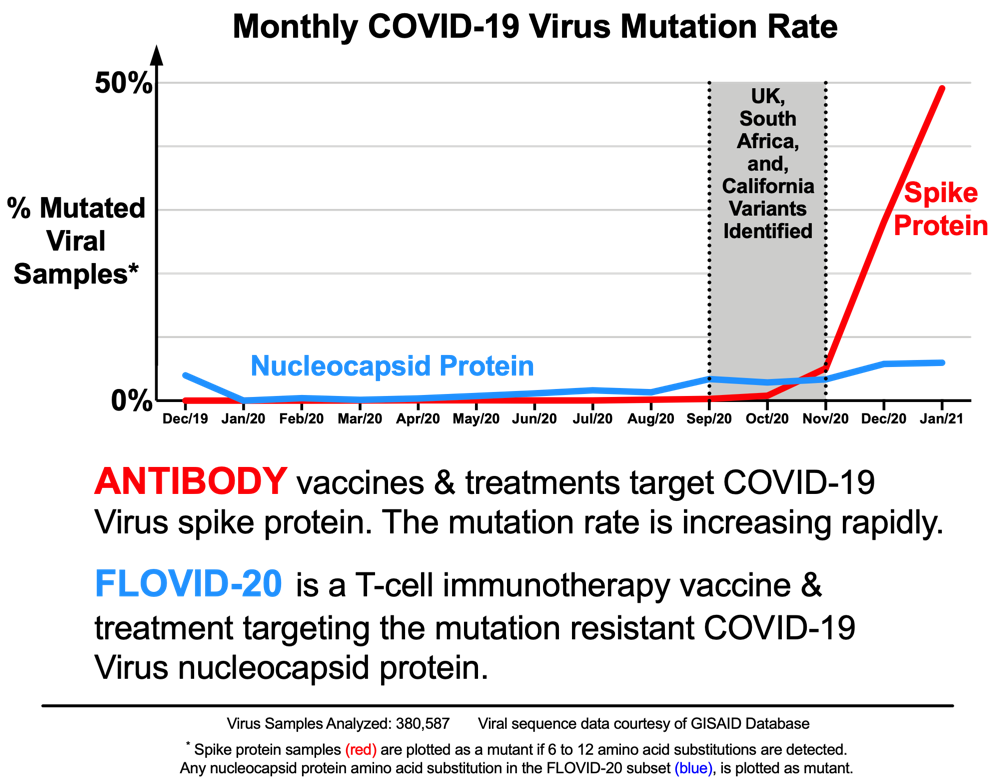The last few months have seen an alarming number of observed mutations on SARS-COV-2, the virus causing COVID-19. These mutations may not be random, but increasing evidence points to viral variants avoiding protection given by vaccines, therapeutics, or previous infection:
“Some of the data I’ve seen in the last 48 hours have really scared me,” says Daniel Altmann, an immunologist at Imperial College London, who worries that some of results could portend a reduction in the effectiveness of COVID-19 vaccines.
“Fast-spreading COVID variant can elude immune responses”, Nature, Janurary 21, 2021
Mutations on these variants could change the stability of the spike protein and its binding potential to antibodies, thus allowing for more infectivity and immune evasion respectively.

The plot shown above illustrates the increasing mutations of spike protein around the time variants of the virus were discovered, specifically with origins in the United Kingdom, South Africa, and California. In January 2021, nearly 50% of viral samples sequenced from infected individuals around the world have been found to have 6 to 12 amino acid substitutions on the spike protein. The number of mutated sequences and overall mutation count is expected to continue to increase. This is cause for concern as sequence variants may not have the same efficacy as the previously characterized sequences against vaccines and therapeutics.
FLOVID-20 targets a subset of the nucleocapsid protein that has not been shown to mutate at a high degree. This region is conserved through evolution of coronaviruses due to its roles in replication of the viral genome. FLOVID-20 is able to accomplish this by specifically stimulating T-cells that can target these highly expressed and immunogenic conserved internal proteins. This is in stark contrast to current antibody vaccines and therapeutics that are restricted to targeting a region of the spike protein shown to mutate and evade antibodies in recent research.
